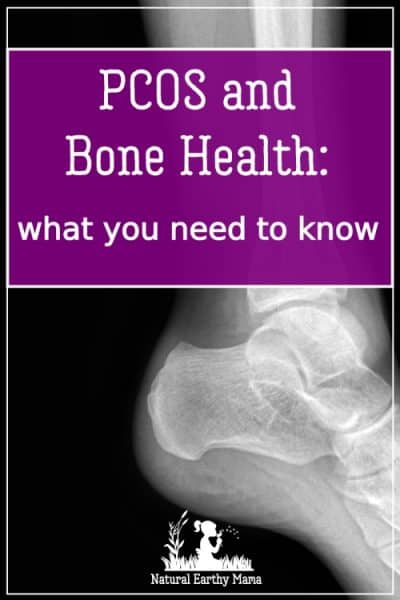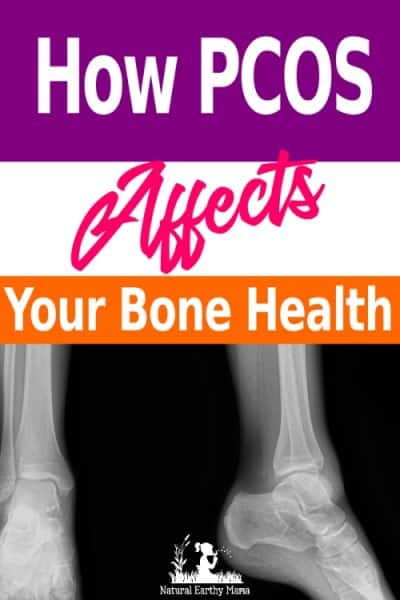 Many women are familiar with hormonal disorders, but the one that affects them the most during their reproductive stage, especially in the years between 15 and 44 is known as polycystic ovary syndrome or PCOS.
Many women are familiar with hormonal disorders, but the one that affects them the most during their reproductive stage, especially in the years between 15 and 44 is known as polycystic ovary syndrome or PCOS.
PCOS is a disorder where women produce an abnormal amount of male hormones that causes an imbalance in their normal hormone level.
Please read: This information is provided for educational purposes only and is not intended to treat, diagnose or prevent any disease. We encourage you to make your own health care decisions in partnership with a qualified health care professional.
This post contains affiliate links, this means at no extra cost to you, we make a commission from sales. Please read
our Disclosure Statement
This leads to irregular menstrual periods and it becomes harder for a woman to become pregnant. Doctors have often noticed that PCOS patients have long-term health problems like complicated heart diseases and diabetes.
The problem with women with PCOS is that they are not even aware of the hormonal imbalance in their body. Some of the primary areas that sustain the most damage due to PCOS include the reproductive organs producing progesterone and estrogen and the ovaries of the woman.
Progesterone and estrogen are the key hormones regulating the menstrual cycle.
Causes of PCOS
High levels of androgen are the leading cause of PCOS. They prevent the ovaries from producing hormones that will help develop the eggs normally. Several other causes are associated with this hormonal disorder including:
Insulin resistance
Almost 70% of PCOS patients have insulin resistance. This means their cells are not able to use insulin normally.
Insulin resistance usually eventually leads to type 2 diabetes, and it is the main cause of the unsightly increased amount of body hair.
Insulin resistance is a protective condition where your body is trying to protect itself from all the carbohydrates and sugar you are consuming. It is also totally reversible in most cases!
Hereditary
PCOS also runs in families. If you know someone from your ancestors who got diagnosed with PCOS, you should contact a gynecologist immediately and get checked for this problem.
Symptoms of PCOS
Hormonal change in women starts when they get their first period. If you notice the following symptoms, consult with a doctor to see if you have PCOS:
1. Hair growth
Facial and body hair may overgrow. You might see a thin line of mustache above your lips. Similarly, hair may grow on the cheeks and hands.
There have been patients who also had hair growing on their chest and belly. This condition is known as hirsutism, and it’s also one of the most telling symptoms of polycystic ovary syndrome.
2. Irregular periods
Unless you are pregnant, you should not experience irregular periods. But if you do, it can indicate that you have PCOS.
Patients are not able to ovulate normally due to the underlying hormone imbalances.
3. Weight gain
Obesity can be a big reason that contributes to having PCOS and vice-versa. You will gain a lot of weight when you have PCOS.
This is largely tied to the insulin resistance – if you are resistant to insulin and continue to eat high levels of carbohydrates and sugar, you will gain weight rapidly.

4. Acne
One of the telling signs of hormonal imbalance is acne. Moreover, male hormones have the tendency to make the skin more oily.
This will cause severe acne problems that are not limited to the face. They can spread to the upper back and chest as well.
5. Heavy bleeding during periods
Since there are irregular periods, you may experience very heavy flow since the uterine lining builds for a longer time. It can make you weak and bed-ridden for a few days. If you are concerned about the amount of blood you are loosing please see your doctor!
PCOS and bone health
PCOS is characterized mainly by hyperandrogenemia and chronic anovulation that could influence the bone health of women (1).
The fluctuating estrogen results in bone loss prior to and during menopause. This leads to the destruction of the bone tissues and low bone mass (2).
The androgens in the ovaries are converted to estrogens, but the quantity of these hormones is so huge that the estrogen receptor is not able to handle the bone metabolism normally and women with PCOS become more at risk of developing osteoporosis after menopause.
Your bone health is impacted by so many factors. Peak bone mass is achieved by age 25-30, and nearly half of that bone mass is put on during your teen years.
Genetic, nutritional and other lifestyle factors all also impact our bones.
Women with lean PCOS, with little fat tissue and relatively lower androgen levels, may be at greatest risk for developing osteoporosis.
The only longitudinal study I read followed 25 PCOS women over a roughly 20-year timeframe, and it basically found that these women, now post-menopausal, had similar body fat, lean mass, bone mineral density and fracture risk as women without PCOS, so the studies are fairly inconclusive at this stage, with conflicting results.
PCOS is a very common condition in women, and if you experience any of the symptoms mentioned, be sure to consult an expert immediately for a diagnosis.
To help reduce your risk of the long term complications of PCOS, it is recommended that you adopt and stick to a low carb diet, and get plenty of weight baring exercises to increase and maintain your muscle mass.
Getting ample vitamin D from sunshine it also critical to absorbing and using calcium correctly in your body.



